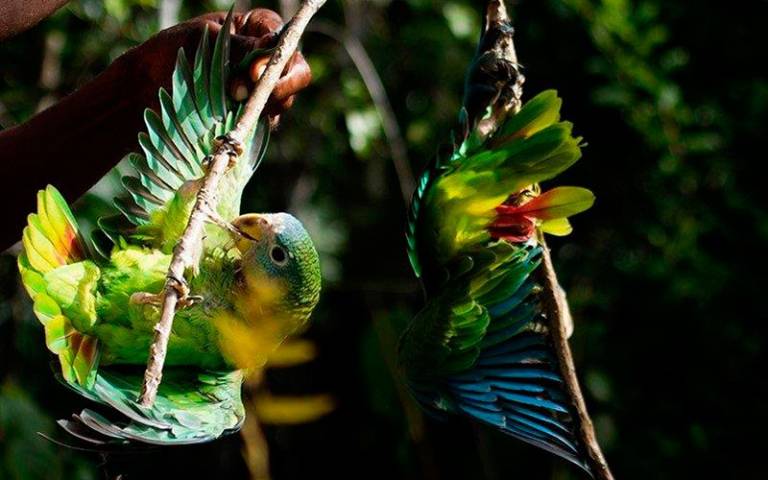Cancelled: CCHS seminar: Documenting traditional knowledge for sustainability and conservation
21 April 2020, 12:30 pm–1:30 pm

Unfortunately, due to the ongoing Covid-19 crisis, this event has been cancelled. We are very sorry for any inconvenience this may cause
Event Information
Open to
- All
Availability
- Yes
Organiser
-
Cecile Bremont – Centre for Critical Heritage Studies
Location
-
Seminar room 612Institute of Archaeology31-34 Gordon squareLondonWC1H 0PYUnited Kingdom
Cockpit Country, a dense inhospitable forest in the uplands of Jamaica is home many endemic and threatened animal and plant species as well as the indigenous Maroons of Accompong village. After anti-mining campaigns, the forest is set to be designated as a protected area. Maroons face potential restricted access to their ancestral land: source of livelihood, lore, tradition, and autonomy. The clandestine nature of their forest use has, in part, led to the failure of conservation efforts to acknowledge and safeguard Maroon access to the forest. As a result of the Maroons’ increasing scepticism of conservation efforts, these uses are likely to remain hidden, making the advocacy of their indigenous rights in this conservation space difficult. As conservation efforts intensify, the prospective criminalisation of many forest-based traditions may result in growing risks and diminishing returns in their undertaking. As future generations seek other, modern forms of livelihood, Maroons could see the death of their centuries-old traditions at the hands of conservation.
This project funded by the Centre for Critical Heritage Studies Small Grants scheme catalogued the forest-based traditions and customary practices of the Accompong Maroons in a series of short films, photographs, and infographics, curated in a digital exhibition – first in the village’s museum, and then later in the Natural History Museum of Jamaica. These digital archives have led to roundtable discussions with the Forestry Department on policy-making and land tenure, have been included in the village’s curriculum on traditional knowledge, has supported cultural and eco-tourism, and formed the basis of an indigenous mapping initiative funded by National Geographic: Countermapping Cockpit.
All welcome. No registration required.
Please note that room and time are subject to change, so it strongly advised to double check details on the website before heading to the seminar. Thank you for your understanding.
Links
Photo: 2018 © Lydia Gibson
About the Speaker
Lydia Gibson
PhD candidate in Human Ecology at UCL anthropology
Lydia Gibson is a Human Ecology PhD student in UCL Department of Anthropology studying traditional parrot hunting among indigenous Jamaican Maroons and its potential to inform our scientific understanding of climate change, land use, species distribution, and ecosystems within Cockpit Country. Working alongside Maroons, Lydia’s current project seeks to read an open-access online interactive map of Cockpit Country to facilitate conservation planning among decision- and policy-makers and to further develop local archives of traditional knowledge to encourage sustainable practices.
More about Lydia Gibson
 Close
Close

